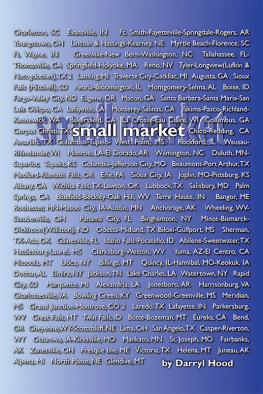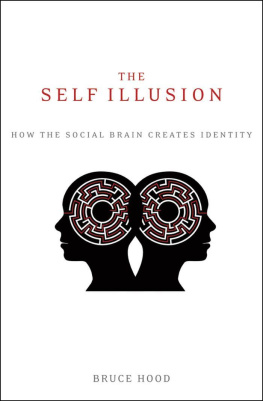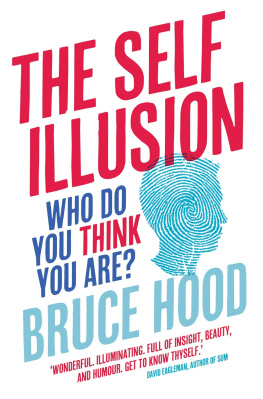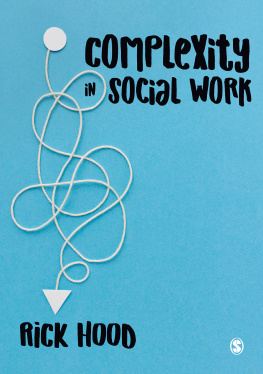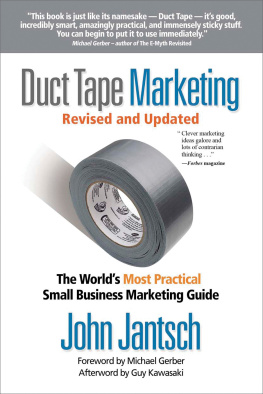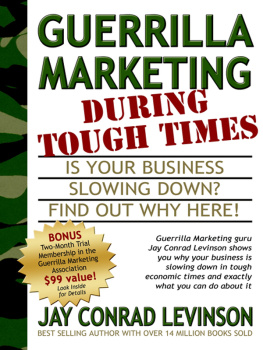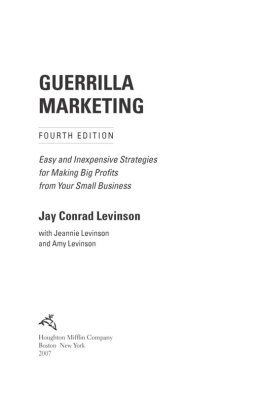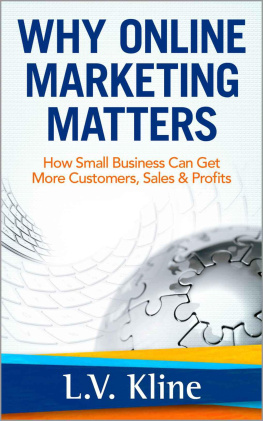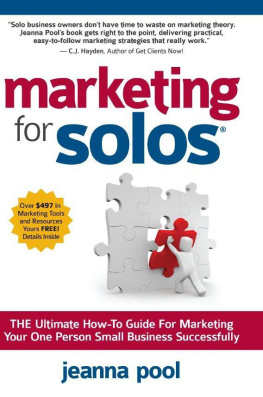Small Market
By Darryl Hood
Small Market
Copyright 2007 by Darryl Hood
All rights reserved. No part of this book may be reproduced or transmitted in any form or by any means without written permission of the author.
Cover Design by Joyclyn Dunham
This book is dedicated to my family, friends and mentors. Their love, support and guidance has and continues to help me make my dreams become reality.
Contents
Introduction
In a world where many anchors and reporters have become as famous as the newsmakers they interview, its not surprising there are lots of people who aspire to become television journalists. Contrary to popular belief the life of a television journalist is not always as glamorous as it appears, especially at the beginning of a persons career.
What many budding journalists often dont realize is, just like with any other business, you have to pay your dues. Sometimes, that means getting down in the trenches to prove youve got what it takes to tell a story or to become a newsroom leader. Rarely does a person start out on top in the TV news business. No one becomes a network news anchor, correspondent or the main anchor of a local news station right out of college.
What these positions require is experience, determination and sometimes patience. Climbing the ladder to a successful career in television news can be quite the journey. The paths to the top arent exactly the same for everyone, but there are similarities among all journalists who have had to pay their dues. Small Market is an informative tool young journalists can use to prepare themselves for what lies ahead on their journey to a successful career.
The book draws from the experiences of several journalists that started their careers in small markets. Regardless of whether the goal is to become an anchor, reporter, producer or assignment editor, Small Market offers something to every person in the newsroom to help make the path on the journey to success enjoyable and worthwhile.
So You've Been Hired
The Business is its Own Animal; Not a Regular Day to Day Job
Okay, so youre making $12 to $15 thousand a year; what, you thought it would be more? Well dont feel left out, most people believe when they start working in the broadcast news business theyll at least start off earning $18 thousand a year, you know, given the cost of living increases and all, but many times thats not the case. There are actually some people out there who took television news jobs that only paid ten grand a year. Find that hard to believe? Well, just think about all the other stuff you can believe now that youre working.
Before I go any further, I want to congratulate you for making it this far. A large percentage of people who set out to become broadcast journalists never make it, for one reason or another, but you did. That says a lot about you. Youve got drive and determination; the tools you need to make it in the business. Youll hear that term a lot when discussing the broadcast news industry with others.
Throughout your illustrious career (Im being facetious), youre going to find that you go through all sorts of changes: physically, mentally and emotionally. You get some indication of that your first week on the job. Its at that point, you find, the honeymoons over and you actually have to get some work done. Not like the days when you worked for the college station and you could get away with not making deadline. You learn early in the professional game, you miss too many deadlines your News Director has no use for you.
Making deadline will often be stressful, yet, at times exhilarating. With so much to do: coming up with a story idea, making phone calls, shooting video, writing and editing the story, thats to be expected. Unlike people with other jobs, who often look at the clock and think to themselves when will this day end? Youll find yourself looking at the clock thinking Im running out of time. I can remember many days I thought my head was going to explode because I had so much to do. There were days I would do three vosots and a package. That included shooting, writing and editing them, and going live, sometimes at 5pm and 6pm.
Although it was hard, the payoff was it made me quick. Do you often wonder how those more experienced anchors, reporters, producers and photographers get things on the air so quickly? Its because theyve been where you are. They paid their dues. And as Im sure youre finding out, the cost can seem pretty high. But think about this, on those days you do what you consider to be a good job; the cost is well worth it. The quicker you get, the better you become at telling stories, the more profitable the investment you make into your career in the business.
Keeping in mind your present job is preparing you for better days to come will keep you motivated. Many times that first job requires people to move to a city (small market) thats far away from home, and in some cases is undesirable.
If this has happened to you, you probably are or soon will be ready to leave for greener pastures. I, like many of my colleagues, was ready to leave the small market I was in after the first three months on the job. I actually stayed for a year and a half. My advice to you when you do get the itch to leave is to think about it carefully. Make sure youre ready to jump to that next market, which is usually bigger than the one you leave, before you get there. You dont want to make it to the next level and find you arent ready to handle what it requires of you. Thats why its important you learn as much as you can from the first job. Learn how local government works, learn whos responsible for making sure the local economy is doing well, and know the difference between the county commission and city council. This is basic knowledge youll need when covering stories in bigger markets, and no one is going to take the time to teach you about these things after youve made your move.
Its all about accountability too. The mistakes you make in the smaller market are often overlooked because of your level of experience, unless you do something that could get the station sued. Credibility also factors into this. If you get to a bigger market and make mistakes that you shouldnt be making in the new market, your audience will notice. Viewers in every market are accustomed to a certain level of news presentation. Make too many mistakes, to put it plainly, your credibility will be shot to hell. Clearly, you dont want that to happen.
By the time, I left my small market, I was grateful to have gotten out (very grateful), but I was also thankful that I stayed as long as I did. Truth is, if I wouldve left before that time, I would not have been ready for the next market I went to which was a considerable jump. I jumped 137 markets and I couldve actually jumped a few more, but I knew I wasnt ready.
Staying in a small market until youve learned as much as you can will benefit you greatly. And once your time there is up, youll know how high you can jump and feel competent. I know youre probably starving, you know making 15 grand and all, but being honest with yourself, I believe, is one of the best things you can do for your career. You may get several offers from markets of all sizes. With some of those offers the money will sound great, but if you arent ready to take on the responsibility of that market how long do you expect the money to last? As hard as it may be to believe theres more to furthering your career than making money at this stage in the game. You want longevity in any market you go to. A way to ensure that, somewhat, is by being qualified; skilled enough to handle whatever comes your way.
I had several offers before I left my small market, but I knew that I wasnt qualified to do the news in some of the cities that came a callin. And believe me I struggled with turning down some of those offers. I thought about many of them for as long as I could, because at some point I had to give the inquiring News Director an answer. I also had long talks with my mentors about the pros and cons of accepting any job offer just to leave my current town. It was tough, but in the end, I believe I made the right decision. The move was right, the money was right, the situation was right. I was close to home, I actually made enough money to do the things I love to do, and the job provided me with the opportunities I was looking for. I have no complaints about the decision I made, but I guarantee you I would have if I made the decision without thinking it through first.
Next page
